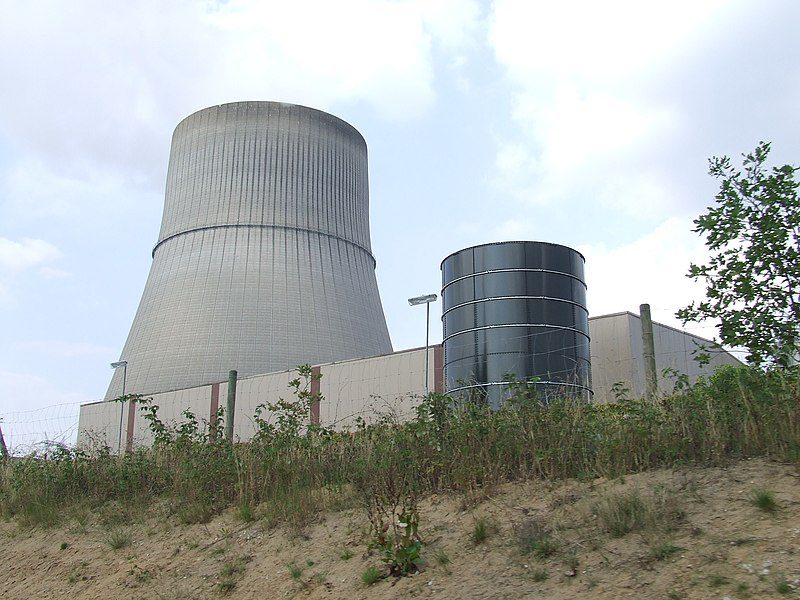
The end of the year will bring the end of power production for three of Germany’s final six operating nuclear power plants. The 1,410-MW Brokdorf unit in Schleswig-Holstein, the 1,360-MW Grohnde unit in Lower Saxony, and the 1,288-MW Gundremmingen C unit in Bavaria will all be permanently taken off the gird on Dec. 31. That will leave three nuclear reactors in operation in Germany—the 1,335-MW Emsland unit in Lower Saxony, the 1,410-MW Isar 2 unit in Bavaria, and the 1,310-MW Neckarwestheim 2 unit in Baden-Württemberg. All three of the remaining units are slated to close by the end of 2022.
The nuclear phaseout in Germany has been planned for more than a decade. In May 2011, Germany’s then-Chancellor Angela Merkel officially endorsed the idea. Merkel had been a nuclear power supporter and actually overturned a phaseout policy enacted by a previous administration, but after the Fukushima disaster, her position changed. The decision to phaseout nuclear kicked the country’s Energiewende (or energy transition) into high gear.
Prior to the disaster, nuclear power had supplied about 23% of Germany’s electricity needs. Eight of Germany’s 17 reactors that were operational at the start of 2011 were officially retired in August 2011. Most of those were commissioned in the late 1970s and were never restarted after being taken offline following the events in Japan. Of the remaining units, Grafenrheinfeld was permanently shut down in June 2015, six months ahead of schedule because plant owner E.ON said it was not profitable to continue operating. Gundremmingen B was retired at the end of 2017, and Philippsburg 2 was removed from service at the end of 2019, leaving six German units remaining. The six reactors supplied about 11.4% of Germany’s gross electricity production in 2020, with the units averaging a respectable 88.7% capacity factor.
Germany is not the only country in Europe that is closing nuclear plants. Belgium will shutter all seven of its operable reactors by 2025. The 5.93-GW fleet of pressurized water reactors—operated by Engie subsidiary Electrabel—comprise four reactors at the Doel plant in Flanders and three reactors at the Tihange site in Wallonia. All of the units came online between 1974 and 1985.
Belgium passed a law in 2003 to gradually phase out nuclear energy for the industrial production of power, but amendments in 2013 and 2015 extended the lives of Doel 1 and 2, and Tihange 1. The decision to close all of the units was reached on Dec. 23 as part of a political compromise by the country’s seven-party government coalition and marks a new phase for its energy trajectory. Nuclear power may still be part of the country’s energy future, however; as leaders have indicated that they will keep options open for small modular reactors. Belgium, a major European trade and transport hub, has relied on nuclear power for nearly half its generated power since 1990.
Spain has also indicated that it will phase out nuclear power from its energy mix. Nuclear power held a 22.5% share of the country’s power generation mix in 2020, but that is expected to decrease to 7.8% by 2030, according to some estimates. Spain, which has seven operating reactors, will begin closing units in 2027. Four units are scheduled to be closed by 2030, while the other three will shut down by 2035.
Meanwhile, France, which has long relied on reactors to supply more than 70% of its electricity needs, has been planning for several years to reduce its dependence on nuclear power. In a strategy originally rolled out in 2015, the share of nuclear energy in the electricity supply was to be limited to 50% by 2025. The deadline was later extended to 2035 when the pace of renewable energy development lagged expectations.
To reach the goal, it was expected that 14 of the country’s then-operating 58 reactors would be shuttered. The first two units to be removed from service were at the Fessenheim plant located in eastern France on the border with Germany. They were closed in February 2020 and June 2020, respectively.
Since then, President Emmanuel Macron has indicated that nuclear power is vital to keeping France’s power prices “reasonable.” In a televised address in November, Macron said he supports construction of new reactors. “We are going, for the first time in decades, to relaunch the construction of nuclear reactors in our country and continue to develop renewable energies,” he said. Still, there are no indications that energy policy changes are forthcoming, so France could simply be planning to replace old units with new reactors as retirements are warranted.
—Aaron Larson is POWER’s executive editor (@AaronL_Power, @POWERmagazine). POWER Senior Associate Editors Sonal Patel and Darrell Proctor contributed to this article.
The post Three Nuclear Plants Close in Germany, Final Three to Be Retired in 2022 appeared first on POWER Magazine.